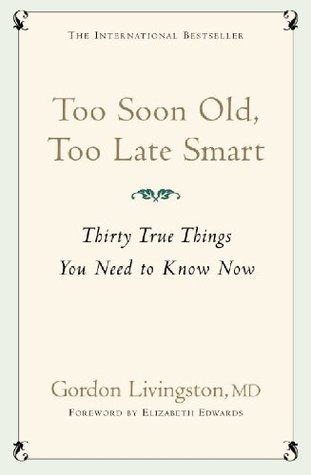More on this book
Community
Kindle Notes & Highlights
Read between
March 31 - May 3, 2024
What most people fail to realize, however, is that the qualities we value—kindness, tolerance, capacity for commitment—are not randomly distributed. They tend to exist as constellations of “traits” that are recognizable and reasonably stable over time.
At the top of the list would be kindness, a willingness to give of oneself to another. This most desirable of virtues governs all the others, including a capacity for empathy and love. Like other forms of art, we may find it hard to define, but when we are in its presence, we feel it.
Happiness is not simply the absence of despair. It is an affirmative state in which our lives have both meaning and pleasure.
We are not what we think, or what we say, or how we feel. We are what we do. Conversely, in judging other people we need to pay attention not to what they promise but to how they behave. This simple rule could prevent much of the pain and misunderstanding that infect human relationships.
I am of the opinion that the old have a duty to suffer the losses of age with as much grace and determination as they can muster and to avoid inflicting their discomforts on those who love them.
If we can retain our good humor and interest in others even as the curtain closes, we will have contributed something of inestimable value to those who survive us. We will have thereby fulfilled our final obligation to them and expressed our gratitude for the gift of life that we, undeserving, have been given and that we have enjoyed for so long.
Suicide is the ultimate expression of this preoccupation with self. Instead of just expressing the sympathy and fear that suicidal people evoke in those around them, therapists included, I think it is reasonable to confront them with the selfishness and anger implied in any act of self-destruction.
When we forget other things: birthdays, anniversaries, names, promises, it is also possible to discern underlying attitudes that may be hard for us to acknowledge openly.
It is surprising how often the closest relationships in our lives come, over time, to resemble power struggles in which we become intimate enemies.
The primary goal of parenting, beyond keeping our children safe and loved, is to convey to them a sense that it is possible to be happy in an uncertain world, to give them hope. We do this, of course, by example more than by anything we say to them. If we can demonstrate in our own lives qualities of commitment, determination, and optimism, then we have done our job and can use our books of child-rearing advice for doorstops or fireplace fuel. What we cannot do is expect that children who are constantly criticized, bullied, and lectured will think well of themselves and their futures.
The significant thing that I have observed over the years is that children can be raised successfully under a variety of parental regimes ranging from the authoritarian to the permissive. What is important is that children feel loved and respected.
How can anyone be happy in such a world? A good case of healthy denial helps, but the real secret is selective attention. If we choose to focus our awareness and energy on those things and people that bring us pleasure and satisfaction, we have a very good chance of being happy in a world full of unhappiness. It is the true wonder of the human condition and the ultimate demonstration of courage that we can bring ourselves, even momentarily, to enjoy life even as we are surrounded by evidence of its brevity and potential for disaster.
The ability to do this, to be happy with each other, constitutes the most useful example we can provide our children. A sense of humor helps, too.
Widely confused with forgetting or reconciliation, forgiveness is neither. It is not something we do for others; it is a gift to ourselves. It exists, as does all true healing, at the intersection of love and justice.


